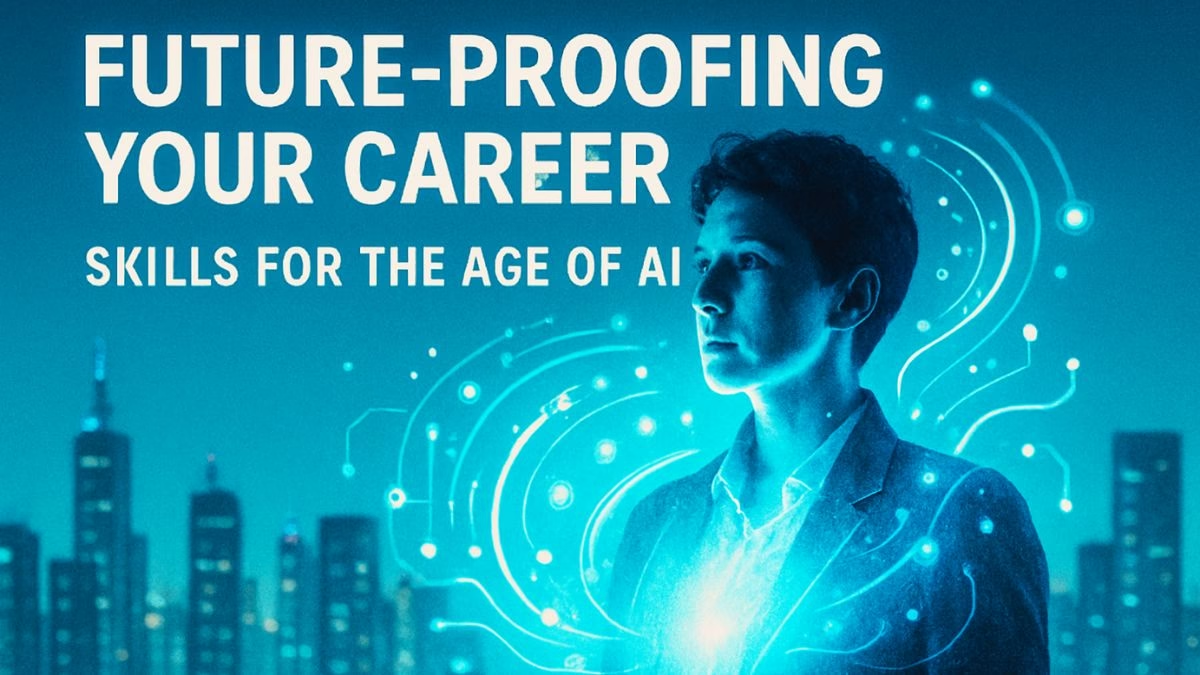Introduction
Welcome to the “Future-Proofing Your Career” quiz! In a world where artificial intelligence is changing the way we work, it’s easy to feel uncertain about the future. But this isn’t about competing with machines; it’s about learning to collaborate with them and focusing on what makes us uniquely human. This quiz is designed to be an empowering tool for self-reflection. It’s not a test of what you know, but a guide to help you recognize and cultivate the skills that AI can’t replicate. By engaging with these real-world scenarios, you will learn to distinguish between automatable tasks and human-centric work, understand powerful career strategies like upskilling and reskilling, and, most importantly, identify your own irreplaceable strengths. Get ready to discover your power in the age of AI.
Learning Quiz
This is a learning quiz from English Plus Podcast, in which, you will be able to learn from your mistakes as much as you will learn from the answers you get right because we have added feedback for every single option in the quiz, and to help you choose the right answer if you’re not sure, there are also hints for every single option for every question. So, there’s learning all around this quiz, you can hardly call it quiz anymore! It’s a learning quiz from English Plus Podcast.
Quiz Takeaways | Your Career in the Age of AI
Hello and welcome. There’s a conversation happening right now in every company, in every industry, and it’s all about artificial intelligence. For many of us, that conversation can sound a little scary. It’s filled with words like “automation,” “disruption,” and “obsolescence.” But I want to reframe that conversation today. I want to talk about opportunity, about evolution, and about what makes us, as humans, irreplaceable. The goal is not to future-proof your career from AI, but to future-proof your career with AI.
The quiz you just took was designed to start you on that path, to get you thinking about the new landscape of work. The first thing we need to understand in this new landscape is the new division of labor. Think of AI as being brilliant at certain things. It has a near-perfect memory, it can see patterns in vast amounts of data that no human ever could, and it can perform repetitive, rule-based tasks with incredible speed and accuracy. It is the master of “what is” and “what was.” It can analyze a million customer reviews, transcribe a meeting, or process invoices in the blink of an eye. These are the tasks we should gladly hand over to our new machine partners.
But AI has profound limitations. It has no real-world common sense. It has no emotions, no empathy, and no true creativity. It cannot mediate a dispute between two angry colleagues because it doesn’t understand what anger feels like. It can’t look at a complex business problem and imagine a completely novel solution that has never been tried before, because its world is defined by the data of the past. And it cannot make a complex ethical judgment, like whether to build an airport on a historic site, because it understands cost and efficiency, but it has no concept of culture or heritage. This is where we come in. Our value lies in the skills that pick up where the AI leaves off: our creativity, our critical thinking, our emotional intelligence, and our judgment.
So, what does this mean for your career strategy? It boils down to two key concepts we explored in the quiz: upskilling and reskilling.
Upskilling is the process of adding new skills to your toolkit to become better at your current job. It’s about evolution. Think of the graphic designer learning to use AI tools. She’s not becoming something else; she’s becoming a better, more efficient, and more capable graphic designer. She’s automating the routine parts of her job so she can spend more time on the truly creative parts. For most of us, upskilling will be a constant part of our careers. It means staying curious and embracing the new tools that can help us augment our abilities.
Reskilling, on the other hand, is about transformation. This is for when the core functions of a job are truly being automated. The classic example is the truck driver who learns to become a technician for autonomous vehicles. He recognizes that his old skillset is becoming obsolete, so he learns an entirely new one to transition into a new, more in-demand role. Reskilling is a bigger leap, but it’s a powerful, proactive response to major technological shifts. Knowing whether your situation calls for an upgrade or a complete transformation is the first step in building a resilient career.
But what are the skills we should be learning? The quiz scenarios all pointed toward a core set of durable, “human-in-the-loop” skills. These are the abilities that will be in high demand for the foreseeable future.
First, there’s critical thinking and complex judgment. In a world flooded with AI-generated information, the person who can step back, question the output, spot the bias, and see the bigger picture is invaluable. The AI can give you a recommendation, but the critical thinker asks, “What assumptions is this recommendation based on? What important context is it missing?”
Second, there’s creative problem-solving. AI is trained on the past. It can’t solve a problem it has never seen before. When we face a truly novel challenge, we need that spark of human ingenuity—the ability to connect disparate ideas, to experiment, and to invent a new way forward.
And third, perhaps most importantly, there’s emotional intelligence and collaboration. An AI can manage a project timeline, but it can’t manage a team. It can’t inspire, motivate, or persuade. It can’t understand a client’s unspoken anxieties or build a relationship based on trust. As the routine, technical parts of our jobs get automated, the deeply human work of connecting with, leading, and collaborating with other people becomes our primary source of value.
So, the path forward is not a race against the machine. It’s a partnership. It’s about having the self-awareness to know our own unique strengths, the foresight to see how the world is changing, and the courage to become lifelong learners. The future is not about becoming more like machines. It’s about becoming more deeply, more uniquely, and more skillfully human.










0 Comments